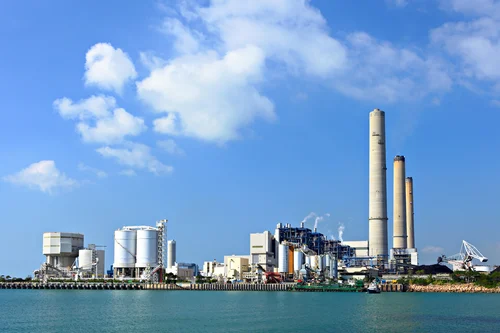What Are Business Electricity Rates in 2024-25?
If you’d like to reduce your business energy bills, the first step is to find a tariff with a lower unit rate. However, businesses often struggle to determine the correct price per kilowatt-hour (kWh). In this guide, we’ll examine current average unit rates, explain how businesses can lower energy costs, and explore how using a business electricity comparison can help optimize charges.
How Does the Business Energy Market Work?
The business energy market operates similarly to the domestic market, but there are a few key differences. Businesses pay VAT at 20%, while domestic customers enjoy a reduced VAT rate. Additionally, businesses are subject to several green taxes, including the Climate Change Levy (CCL).

Understanding Kilowatt-Hours (kWh)
A kilowatt-hour is a unit of energy. Energy suppliers use kWh to calculate your energy bills. For example, 1 kWh is approximately the energy required to power a desktop computer for three hours. Your bill should clearly display both your business’s energy usage and the cost per kWh.
Wholesale Electricity Rates
Wholesale energy rates refer to the lowest prices available if your business were to purchase energy directly from generators. These rates fluctuate weekly. For example, in 2018, wholesale electricity cost around 6p per kWh, compared to just 3p per kWh in 2020.
Most businesses buy energy from retail suppliers, which mark up the wholesale price. Typically, businesses pay around double the wholesale rate. Over the past year, small to medium enterprises have paid between 13p and 17p per kWh plus VAT, although additional costs like standing charges also apply. It’s crucial to compare suppliers, as some may offer lower unit rates with higher standing charges.
Typical Annual Small Business Energy Rates
Annual energy costs vary depending on the business type. Small and medium-sized enterprises typically use 15,000–20,000 kWh of electricity per year. Here’s a breakdown of average annual electricity costs for various business types:
Restaurant: £3,070
Small Farm: £2,220
Hair Salon: £2,180
Café: £2,110
Dental Surgery: £2,175
Newsagent: £1,830

Does the Size of My Business Affect Energy Rates?
There is no standard price for energy per kWh in the UK. Businesses typically benefit from lower unit rates and standing charges based on usage. For instance, a micro-business consuming 8,000 kWh annually may pay around 16.7p per kWh, with a daily standing charge of 27.4p, totaling approximately £1,439 per year.
A larger business consuming 80,000 kWh annually may secure rates around 12-13p per kWh, with a standing charge of 26.2p per day, bringing annual costs to approximately £10,439. However, rates vary by supplier, so it’s a good idea to compare quotes from multiple suppliers based on past bills.
Other Factors That Affect Business Energy Rates
The type of business and operating hours can influence energy rates. Businesses that operate during off-peak hours (evenings and weekends) often enjoy lower kWh rates due to reduced demand on the energy network.
If you have a dual fuel contract (electricity and gas), you may receive lower rates for both, but this isn’t always the case. Always check for single and dual-fuel options before switching.
The length of your contract can also impact costs. On average, each year added to your contract increases unit costs by about 6%, with standing charges rising between 2% and 6% annually.
Conclusion: It Pays to Switch
Business electricity suppliers often offer better deals to new customers than to existing ones. Regularly reviewing your energy costs using comparison tools can help you save significant amounts every year.
Business Electricity Rates: FAQ
What is the average price for business electricity in the UK?
On average, businesses pay around 13.3p per kWh, with a standing charge of about 27p per day.
Which supplier has the best business electricity rates?
Rates vary based on consumption, meter type, business type, and location. The easiest way to find the cheapest rates is to compare them using an online tool tailored to your area.
Are business electricity rates cheaper or more expensive than domestic rates?
While standing charges and unit rates are similar for both business and domestic customers, businesses face additional taxes like the Climate Change Levy. These taxes can increase business energy bills by over 30%.


